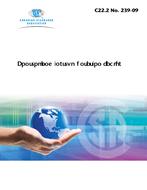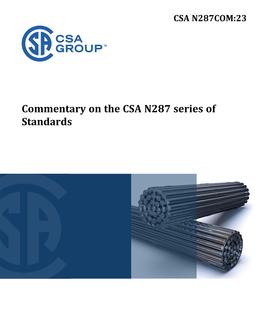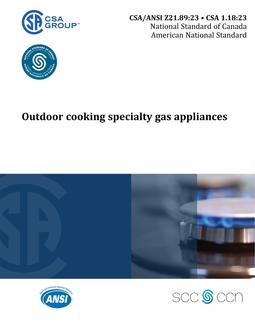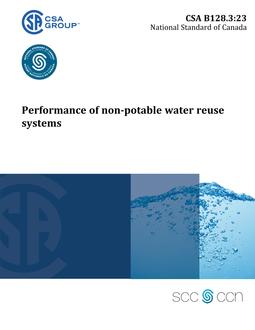
CSA C22.2 NO. 239-09 (R2014)
- Comments Off on CSA C22.2 NO. 239-09 (R2014)
- CSA
Click here to purchase
Preface
This is the third edition of CSA C22.2 No. 239, Control and instrumentation cables, one of a series of Standards issued under the Canadian Electrical Code, Part II. It supersedes the previous editions, published in 1997 and 1991.
Scope
1.1
This Standard applies to multiple-conductor control and instrumentation cables (including thermocouple cables and thermocouple extension cables) having a voltage rating not exceeding 1000 V and intended for installation in accordance with the Canadian Electrical Code, Part I.Note: The designations for such cables are “CIC” for unarmoured cables and “ACIC” for armoured cables.
1.2
This Standard applies to cables rated 1000 V, 600 V, 300 V, and 150 V, and to temperature ratings up to 105°C. This Standard also includes specific requirements for high-temperature control and instrumentation cables rated 125 to 250 °C.
1.3
This Standard applies to multiple-conductor thermoplastic or thermoset-insulated assemblies, shielded or unshielded, twisted or cabled, paired or grouped into units, jacketed or unjacketed, sheathed or unsheathed, armoured or unarmoured, and any combinations thereof.
1.4
This Standard includes specific requirements for halogen-free limited-smoke control and instrumentation cables.
1.5
This Standard permits the inclusion of additional components, such as optical fiber members and communications wire used for installation purposes only. No requirements for such components are specified.
1.6
This Standard does not apply to cables intended for internal wiring of electrical equipment, e.g., switchboard and equipment wire, or to cables that undergo repeated flexing.
1.7
In CSA Standards, “shall” is used to express a requirement, i.e., a provision that the user is obliged to satisfy in order to comply with the standard; “should” is used to express a recommendation or that which is advised but not required; and “may” is used to express an option or that which is permissible within the limits of the standard.
Notes accompanying clauses do not include requirements or alternative requirements; the purpose of a note accompanying a clause is to separate from the text explanatory or informative material.
Notes to tables and figures are considered part of the table or figure and may be written as requirements.
Annexes are designated normative (mandatory) or informative (non-mandatory) to define their application.
Product Details
- Edition:
- 3rd
- Published:
- 11/01/2009
- ISBN(s):
- 9781554913268
- Number of Pages:
- 66
- File Size:
- 1 file , 1.2 MB
- Product Code(s):
- 2420348, 2420348



